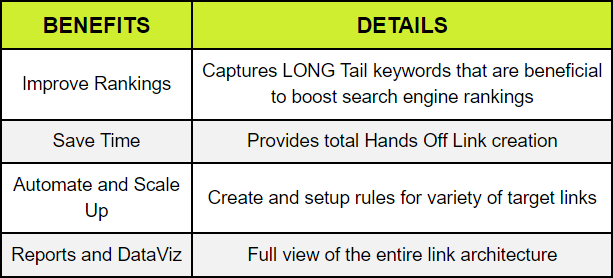In the dilemma of better SEO for website development and content management systems (CMS), Drupal and WordPress stand like pillars. Both have their advantages and disadvantages. However, when it comes to evaluating search engines, many people including developers often find themselves at a crossroads. They grapple with which platform holds a better command for getting the best SEO performance for their website and businesses. In this article, we will evaluate various aspects of Drupal and wordpress and their impact on SEO to disclose which platform performs best for digital visibility.
Drupal vs. Wordpress SEO – Comparison at a Glace
| Feature | Drupal | WordPress |
|---|---|---|
| SEO Flexibility | High flexibility with more complex configurations possible for advanced users. | User-friendly SEO solutions with a variety of plugins like Yoast SEO. |
| Learning Curve | Steeper learning curve due to complexity and customization capabilities. | Easier for beginners to grasp and implement SEO strategies. |
| Customization for SEO | Offers deep customization for SEO, suited for developers with technical skills. | Extensive customization through plugins and themes, easier for non-developers. |
| Performance and Speed | Can be optimized for high performance, but requires technical expertise. | Generally faster out-of-the-box, with many plugins available to further optimize speed. |
| Content Management | Robust for complex content strategies, better for large sites with vast content. | Intuitive and straightforward, ideal for bloggers and content creators. |
| Community Support | Smaller community but highly specialized, offering detailed solutions. | Large community with extensive tutorials, forums, and guides for SEO best practices. |
| Security | Highly secure with enterprise-level capabilities, requiring more setup. | Very secure with regular updates, but popularity makes it a more common target for attacks. |
| Overall SEO Performance | Excellent for large, complex websites requiring detailed SEO management. | Great for most websites, especially those needing straightforward SEO solutions. |
Drupal’s Features
- Flexibility and SEO Features:
- Renowned for its flexibility and robustness.
- Offers a wide range of SEO features catering to developers and SEO experts.
- URL Structure Control:
- Allows precise control over URL structures.
- Enables convenient creation and modification of URLs, enhancing website visibility and approachability.
- Extensibility and Content Management:
- Capable of handling large volumes of content without sacrificing quality or performance.
- Facilitates a seamless website creation process, boosting visibility.
- SEO Optimization Tools:
- Features an extensive library of modules, such as the Drupal SEO Checklist, for comprehensive website optimization.
- Provides thorough options for optimizing various website aspects, including meta tags, sitemaps, and structured URLs.
- Security Features:
- Offers robust security features to protect websites against potential vulnerabilities.
- Enhances trust and credibility, which are crucial for SEO effectiveness.
WordPress’s SEO Features:
- Quality Content Management:
- Known for maintaining high quality in its content management system, catering to bloggers, developers, and businesses alike.
- SEO-centric Features:
- Offers a plethora of SEO-centric features in high demand by the SEO community.
- User-friendly interface simplifies content creation and optimization for both developers and technical experts.
- Powerful SEO Plugins:
- Plugins like Yoast SEO and All in One SEO Pack significantly boost their popularity among SEO enthusiasts.
- These plugins comprehensively control on-page optimization, including meta titles, descriptions, and keywords.
- Enhanced Functionality:
- It boasts additional features like themes and plugins, supported by a vibrant developers’ community, making SEO implementation more straightforward.
- Excels in mobile responsiveness and site speed optimization, which is crucial for SEO and user experience.
- Blogging and Content Categorization:
- WordPress’s robust blogging capabilities and content categorization features enable websites to maintain an organized structure.
- This organization is vital for improving search engine results and rankings.
Evaluating SEO Practices: Drupal vs. WordPress
Choosing the right platform for SEO optimization involves comparing Drupal and WordPress, both of which stand out for their CMS capabilities and unique features.
Drupal’s SEO Advantages
- Flexibility: Drupal offers extensive flexibility, making it suitable for websites with specific SEO needs.
- Control Over URL Structure: Users have better control over URL structures, enhancing the SEO friendliness of their websites.
WordPress’s SEO Advantages
- User-Centric Interface: WordPress is renowned for its easy-to-navigate user interface, appealing to a broader audience.
- Versatile Plugins: The platform’s wide range of SEO plugins simplifies website optimization, making it a favored choice for many.
Ultimately, the decision between Drupal and WordPress depends on various factors, such as the specific needs of your website, available technical expertise, and customization options.
Conclusion
Both Drupal and WordPress offer robust SEO capabilities, each with its own set of benefits. Drupal shines with its flexibility and control over complex SEO requirements, while WordPress attracts users with its user-friendly CMS and extensive plugin library. The choice should be guided by your website’s unique requirements and the level of customization you seek.

